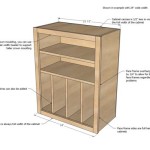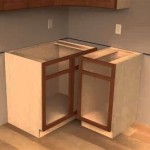Mildew Smell in Kitchen Cabinets: A Comprehensive Guide to Causes and Solutions
Mildew, a type of fungus, thrives in moist, warm environments and can often leave an unpleasant musty smell in kitchen cabinets. Understanding the causes and implementing effective solutions is crucial to prevent this problem and maintain a healthy and fresh kitchen.
Causes of Mildew Smell in Kitchen Cabinets
- Moisture: Spills, leaks, or high humidity levels can create a breeding ground for mildew.
- Poor Ventilation: Lack of airflow allows moisture to accumulate within cabinets, promoting mildew growth.
- Organic Matter: Food spills, crumbs, or grease can provide nutrients for mildew to flourish.
- Condensation: Temperature fluctuations between the inside and outside of cabinets can lead to condensation, which can further contribute to mildew.
Solutions for Eliminating Mildew Smell
- Identify and Eliminate Moisture Sources: Fix any leaks or spills promptly. Use a dehumidifier or increase ventilation to reduce moisture levels.
- Improve Ventilation: Install fans or keep cabinet doors open occasionally to promote airflow and prevent moisture accumulation.
- Clean and Disinfect: Thoroughly clean cabinets with a mixture of vinegar and water or a commercial mildew cleaner. Focus on areas where mildew is visible or the smell is strongest.
- Remove Organic Debris: Regularly wipe down cabinets and remove any food spills or crumbs to prevent mildew from feeding on organic matter.
Preventive Measures
- Encourage Airflow: Keep cabinet doors open when not in use or install ventilation fans to maintain proper airflow.
- Control Moisture: Use a dehumidifier or invest in moisture-absorbing materials to regulate humidity levels within cabinets.
- Promote Cleanliness: Regularly clean cabinets to prevent the buildup of organic matter and potential mildew growth.
- Baking Soda: Place open boxes of baking soda inside cabinets to absorb moisture and odors.
Additional Tips
- Inspect Regularly: Monitor cabinets for signs of moisture or mildew and address any issues promptly.
- Natural Remedies: Essential oils like tea tree oil, lavender oil, or lemon oil have antifungal properties that can help prevent mildew growth.
- Professional Help: If severe mildew persists or there is an underlying moisture problem, consider contacting a professional for further assistance.
Conclusion
Mildew smell in kitchen cabinets can be an unpleasant and potentially harmful issue, but it can be effectively addressed by understanding its causes and implementing proper solutions. By maintaining a clean, dry, and well-ventilated kitchen environment, you can prevent mildew growth, eliminate unpleasant odors, and maintain a healthy and comfortable cooking space.

Why Do Kitchen Cupboards Smell Musty

Getting Rid Of The Musty Old Smell From Your Cabinets N Hance Wood Refinishing Franklin Murfreesboro
:max_bytes(150000):strip_icc()/GettyImages-1269149238-2000-bfbf46464d5d4004be047e27ac73c087.jpg?strip=all)
How To Get Rid Of That Old Musty Smell In Your Cabinets

How To Get Rid Of A Mildew Smell Under Sink Dishwasher Hunker

How To Clean A Moldy Smell Under Kitchen Sink Ehow

Eliminate Unwanted Mildew Smell In Cabinets Handy Tips

Effective Ways To Get Rid Of The Mildew Smell In Your Al Homes I Have Made

5 Steps To Banish Musty Smells From Your Cupboards N Hance Of The Triad

How To Get Rid Of A Musty Smell In Cupboards Hunker

How To Clean Mold In Kitchen Cabinets Servicemaster Re
Related Posts








